The mayoral candidate who’s been surging behind the scenes
Sharon Tucker has the momentum heading into tomorrow’s caucus
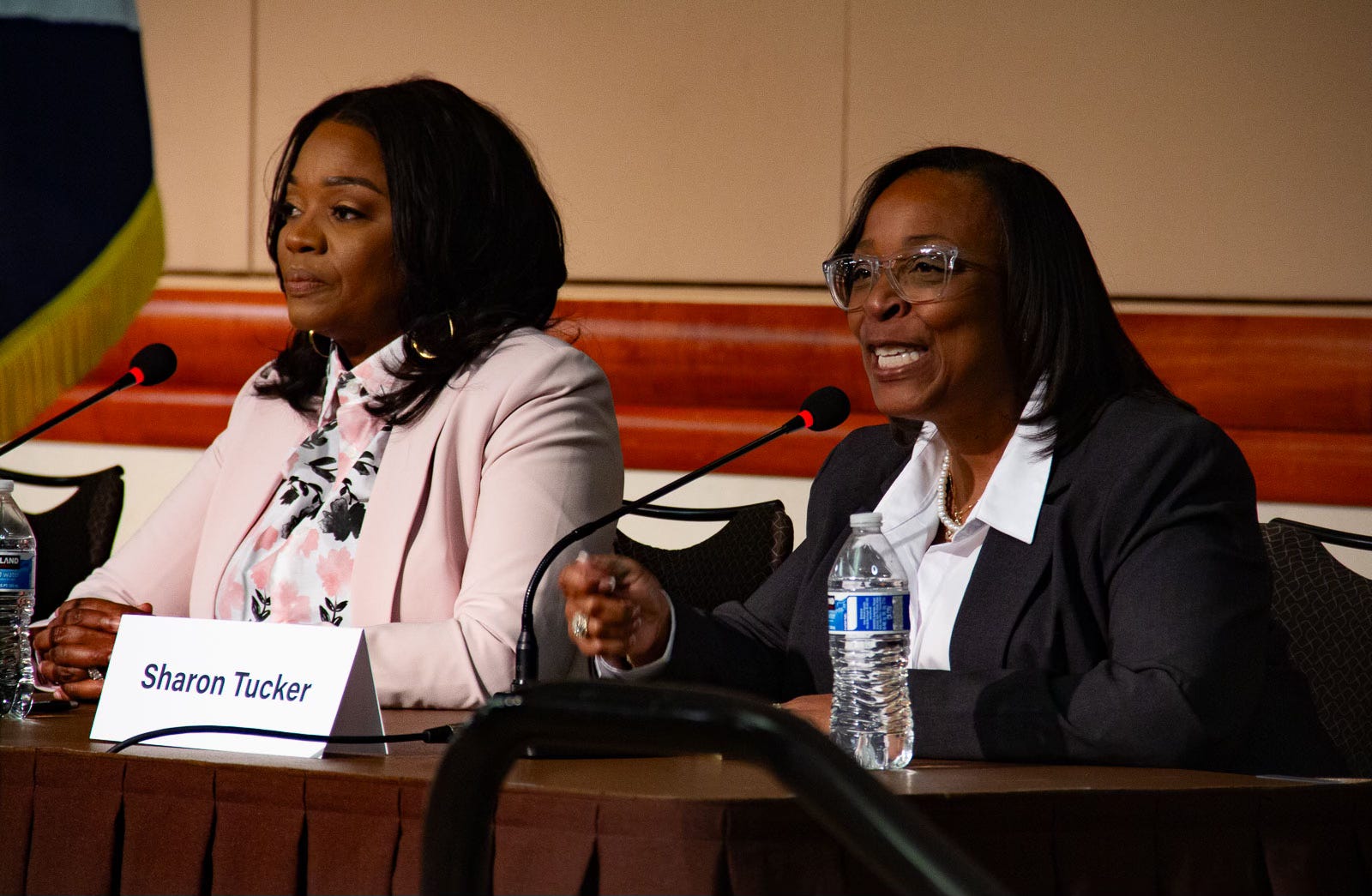
“Who do you think is going to win?”
That’s the question I posed to a local Republican state legislator I ran into earlier today.
“Oh, I think it’s gonna be Phil [GiaQuinta],” they said confidently about their statehouse colleague.
That person isn’t alone. Since Tom Henry’s death just over three weeks ago, the conventional wisdom among the political class is that GiaQuinta is likely to win tomorrow’s caucus and will be the next mayor of Fort Wayne.
But that’s not what I’ve been hearing from the Democratic precinct chairs who will actually make that decision.
Many of them feel like they’ve been given a unique opportunity to move the city forward by selecting a woman or person of color (or both) as mayor, something that some fear is unlikely to happen in the near future in a conventional mayoral election.
Less than a month ago, the Allen County Democratic Party leadership brought in two black female mayors — Deb Whitfield of Lawrence and Stephanie Terry of Evansville — to be the keynote speakers at their annual Obama Dinner fundraiser.
Those women lit a fire under many of the precinct chairs in attendance that night, who pledged to themselves that they wanted to make the same thing happen here. The idea of Fort Wayne having yet another white male mayor after Tom Henry is a non-starter with them, especially since there are other qualified non-white candidates running.
GiaQuinta has surely heard those rumblings. Perhaps that’s why at last night’s town hall forum he made a point to talk about his commitment to diversity if he were to become mayor.
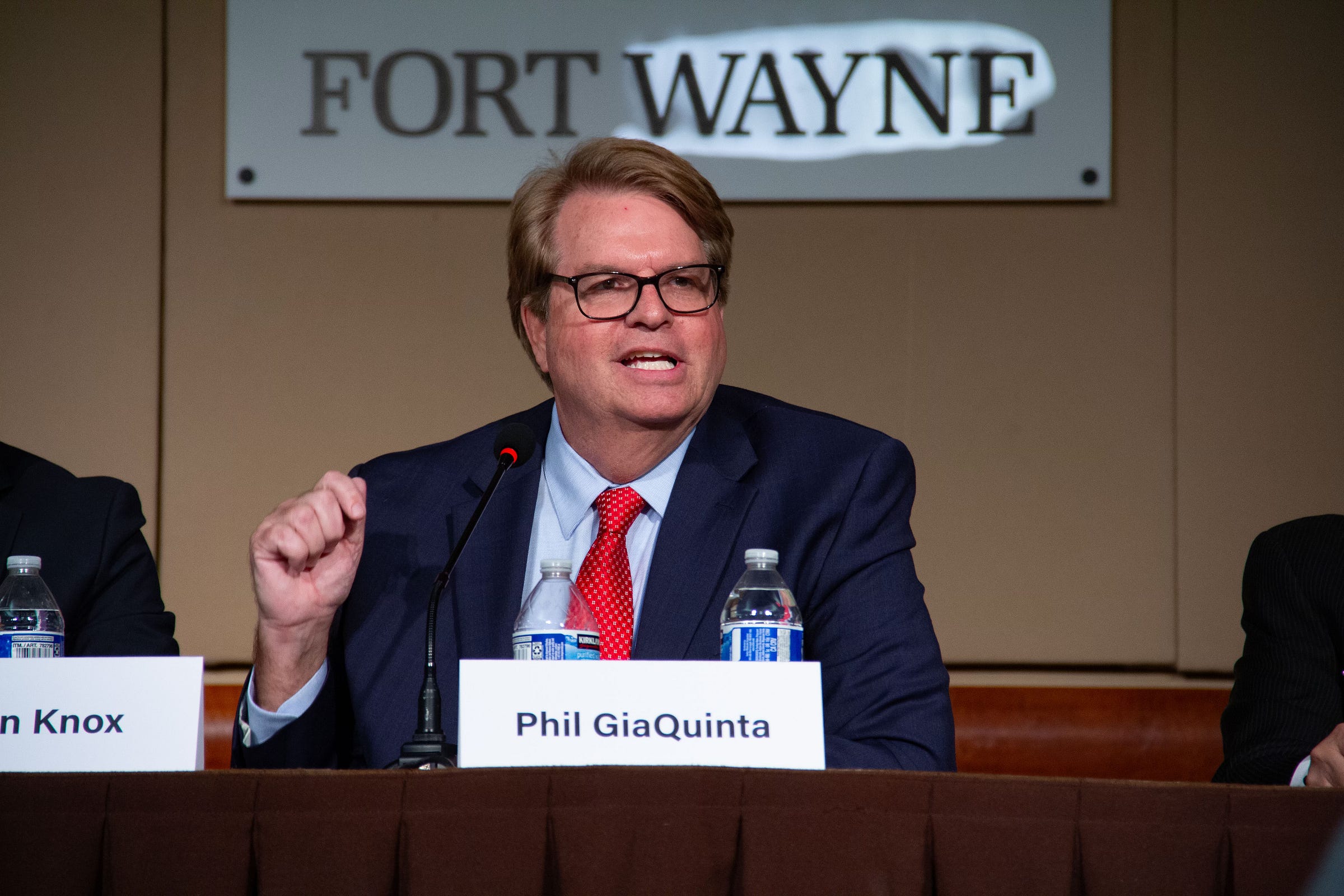
“In my first thirty days [in office] I am going to do a diversity audit. I want to take a look at our boards and commissions and our city leadership,” he said. “I want to make sure that the city is represented by women [and] minorities like it should be. It should be reflective of the city of Fort Wayne.”
GiaQuinta wasn’t the only candidate using the town hall to address the concerns of the precinct chairs. Sharon Tucker also used her time to shore up an area where she had been challenged.
Stuck on the far end of the stage thanks to a random draw, she knew there had been whispers she isn’t a strong enough fundraiser, which one insider said were likely coming from the GiaQuinta camp.
Tucker twice mentioned in her answers how much money she’s brought in as executive director of Vincent Village, a transitional shelter for homeless families with children in Allen County.
“In five months, I was able to raise $5.4 million (for Vincent Village’s current capital campaign),” Tucker told the crowd. “On average, that’s about a million dollars a month.”
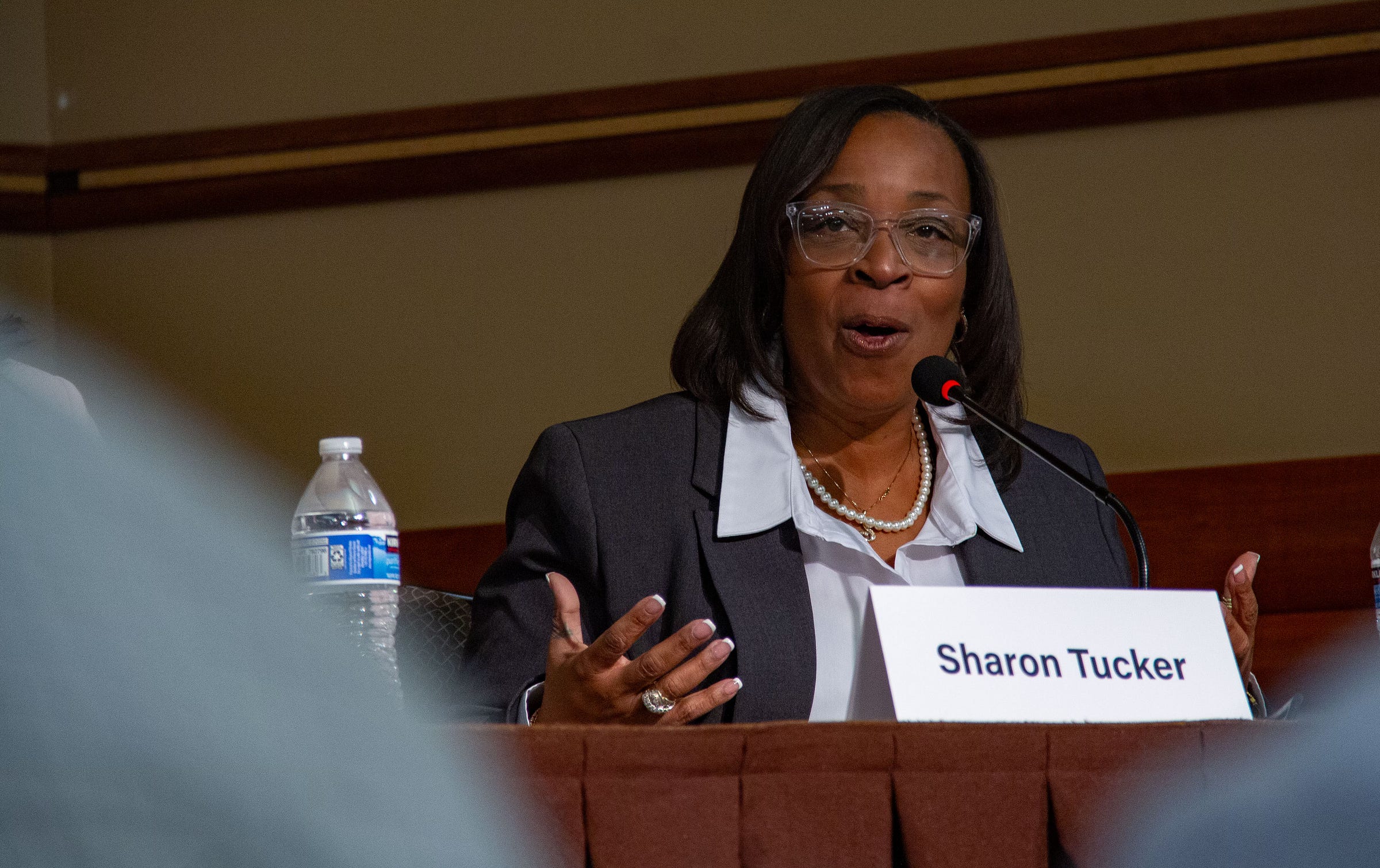
John Christensen, the chair of Vincent Village’s board of directors and the publisher of Fort Wayne Magazine, told me that he’s seen Tucker in action and “she’s an incredible fundraiser.”
According to Christensen, Tucker has yet to be turned down since she started soliciting funds this past December. “Nobody’s said no,” he told me.
Why would GiaQuinta’s proxies be so concerned about Tucker? Because they’re probably hearing the same thing from precinct chairs that I am: her candidacy is surging.
One I spoke with said that after comparing the political resumes of both candidates, Tucker and GiaQuinta aren’t as far apart as this precinct chair first thought.
Both have been consistent winners for over ten years, but neither has ever won a city-wide race. GiaQuinta’s statehouse district makes up about a fourth of the city by population; Tucker’s city council district is one sixth.
Both districts are heavily Democratic, but prior to Tucker’s time on City Council, she defeated a Republican incumbent to win an Allen County Council seat in 2014, then won again four years later. GiaQuinta has never had a serious Republican challenger dating back to his initial run in 2006.

In his outreach to precinct chairs, GiaQuinta has touted his “11 in 2027” goal for Democrats to win all eleven municipal offices in the 2027 election: mayor, city clerk, and nine city council seats. (He also mentioned it twice at last night’s town hall.)
However, one prominent Black Democrat told me they think selecting Tucker as mayor would be more likely to help other Democrats on the ballot that year.
“She will be able to turn out Black voters for other candidates,” this person told me, “in a way that GiaQuinta can’t.”
As I reported yesterday, at least 39% of the precinct chairs who will be voting tomorrow are members of WUFPAC, a group of women whose stated goal is to get “Progressives – specifically Women, LGBTQ+, and People of Color – elected to public office.”
That would appear to preclude them from voting for GiaQuinta, the only white man in the race. If he doesn’t get any support from WUFPAC members, he would only be able to lose 13 of the 59 non-WUFPAC precinct chairs and still win.
That may prove difficult, especially since 30 of them are non-white, female, or both.
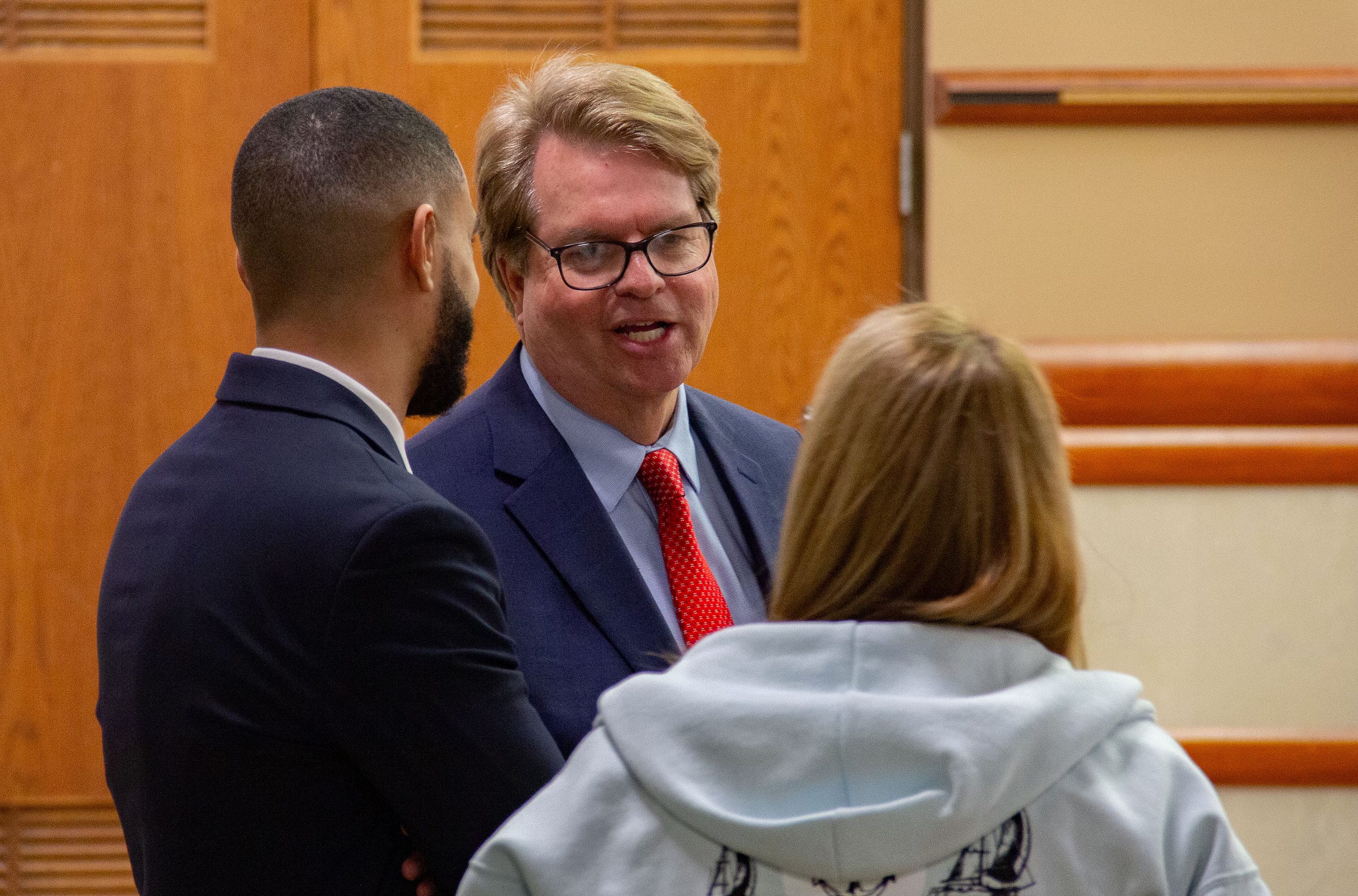
Of course it’s one thing for a majority of the precinct chairs not to support GiaQuinta; it’s quite another for them to rally around a single candidate instead of splitting their votes between all the others.
That’s why Tucker’s ascendance this week has been so important. Based on my conversations, she has emerged as the clear alternative to GiaQuinta, and her performance at the town hall last night further helped her cause.
It’s happened because she and her team appear to have leveraged Tucker’s relationships, political skills, and accomplishments on City Council to effectively persuade a majority of the precinct chairs that Fort Wayne is ready for a black female mayor and — just as importantly — that she is the one for the job.
If they come through for her at tomorrow’s caucus, the political prognosticators are in for a big surprise.
In fact, a historic one.



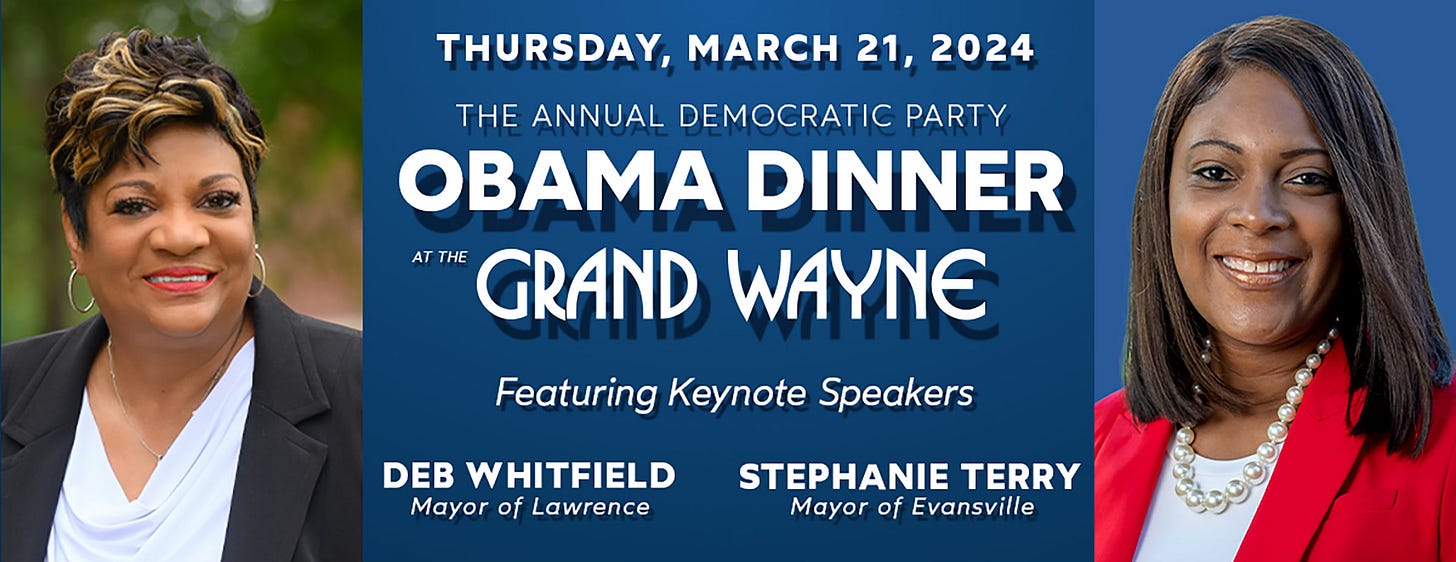
I’m enjoying this coverage. Great work.